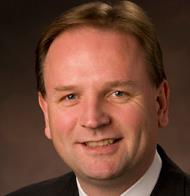Partners HealthCare and Geisinger Health are among health systems making investments and developing the clinical utility of genome sequencing
Next-generation gene sequencing is making fast inroads among the nation’s largest academic centers and health systems. This is an auspicious development for the clinical laboratory industry. It positions pathologists to play a greater role in clinical care and genetic medicine.
News accounts and published research suggest that mega systems—including Partners HealthCare, Geisinger Health System, Scripps Health, and Medical College of Wisconsin—are among first movers investing in genome-sequencing equipment and assembling the medical expertise necessary to establish genetic-testing programs and help physicians utilize gene sequences where appropriate for patient care.
Whole-Genome Sequencing Offered by Partners Health Care
In Boston, Massachusetts, Partners HealthCare is one of the first hospital systems to offer whole-genome sequencing to physicians and patients. The Partners HealthCare Center for Personalized Genetic Medicine (PCPGM) is conducting a MedSeq™ Project clinical trial. The goal is to use genome sequencing to better understand patients’ potential risk of disease, according to the Partners’ website.
200 Patients Participating In Genome-Sequencing Study
Currently, 200 patients are enrolled in the project, which will connect genomic information with the patients’ medical records. PCPGM said its genome-sequencing service “incorporates rigorous clinical interpretation and analysis to guide clinical care.”
Use of next-generation gene sequencing for clinical purposes is still limited. One reason is that few physicians are trained and understand the latest findings in genome analysis. Another major hurdle is that most payers have yet to establish coverage guidelines and pricing for clinical services that incorporate information from gene sequencing.
Some physicians have reservations that gene-sequencing is ready for clinical prime time. “This stuff can be life or death, and it shouldn’t be taken lightly,” observed Bert Vogelstein, M.D., in the Modern Healthcare story. He is Director of Johns Hopkins Ludwig Center for Cancer Genetics & Therapeutics and investigator for the Howard Hughes Medical Institute. “We have to come to grips with the power and challenges (of this technology), and we haven’t yet because it’s too new,” he said.
Whole-genome Sequencing Costs
A report released in March 2012 by UnitedHealth Group (UNH: NYSE) estimated that U.S. spending on genetic testing may grow to between $15 billion and $25 billion annually by 2021. The report showed that, in 2010, UnitedHealthcare spent about $500 million for genetic and molecular diagnostic testing. It projected that national spending on such testing may have been $5 billion that year.

“Genetic science offers unprecedented potential to prevent disease and improve diagnosis and treatment ushering in an era of truly personalized care. But for patients to realize these practical benefits, we will also need new models of research and care delivery combined with informed choice and appropriate consumer safeguards,” said Simon Stevens (pictured) of UnitedHealth Group and chairman of the UnitedHealth Center for Health Reform & Modernization in releasing a report on genetic-testing spending. (Photo copyright UnitedHealth Group.)
At Partners, the charge to individuals for whole human genome sequencing is reportedly $9,000. This includes interpretation and analysis. In cases where the genomes of the child and both parents are sequenced, the cost reaches about $18,000, according to an article published in Modern Healthcare.
Genetic Testing at Geisinger Health
Geisinger Health System has been in front of this trend. Several years ago it founded the The Genomic Medicine Institute at Geisinger. It has been building a genetic repository by collecting specimens from selected patients as they come in for medical laboratory testing. At the time of service, consent is obtained from those patients.
Currently, Geisinger is in the midst of a whole-genome-sequencing clinical research project. Participating are 65 families who have children with undiagnosed intellectual disabilities. The whole genomes of both the children and parents are being sequenced. The cost is estimated to be about $5,000 to $8,000 a child, and about $18,000 per family. As part of this project, Geisinger is covering the costs of the whole-genome sequencing.
It is noteworthy that some of the nation’s largest and most respected health systems are willing to invest in acquiring the latest gene-sequencing technology and expertise to establish in-house gene-sequencing capabilities. We are now seeing first-movers stake out their positions in this fast-developing field of whole-genome sequencing. This appears to be a positive development for pathologists and clinical laboratory professionals.
—Donna Marie Pocius
Related Information:
ACMG recommendations for reporting of incidental findings



